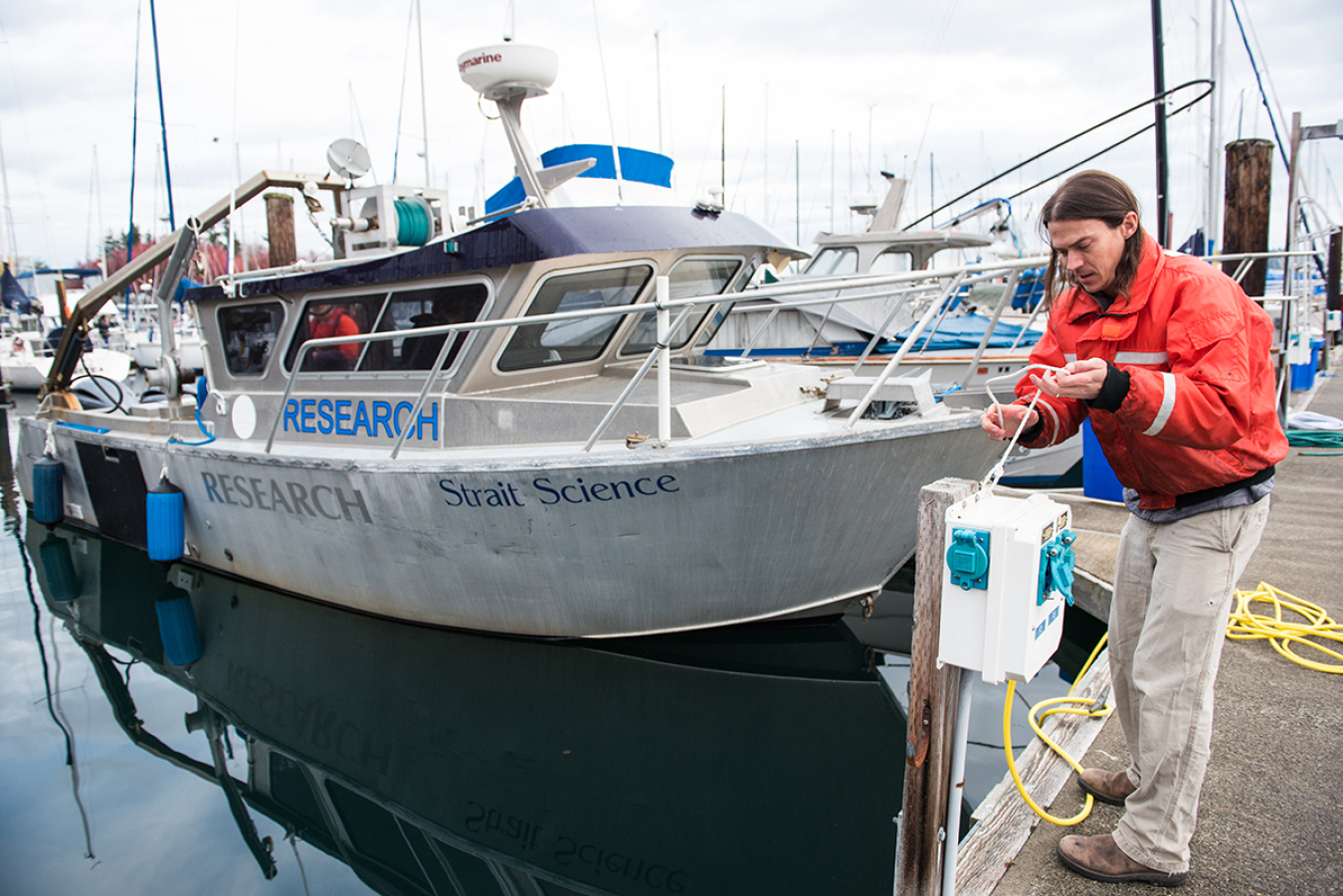Learn why Garrett Staines loves his job as a research scientist at Pacific Northwest National Laboratory's Marine Sciences Laboratory.
June 23, 2020June is Ocean Month, and to celebrate STEM Rising is sharing profiles of Energy Department staff in ocean-related careers. Meet Garett Staines.
My name is Garrett Staines and I’m a research scientist at Pacific Northwest National Laboratory’s Marine Sciences Laboratory in Sequim, Washington. I originally trained in graduate school to estimate fish abundance in large freshwater lake systems. I moved into investigating marine ecosystems and effects of human use. I’ve studied how small village-controlled fishing grounds are managed in Fiji, and how an instream tidal turbine makes electricity for the grid and effects fish movements in Cobscook Bay, Maine. I’m currently researching marine renewable energy like instream turbines in tidal channels or wave energy devices on the West Coast and am working to determine the best environmental monitoring methods to ensure minimal impact on ocean animal communities.

What’s your favorite fact about the ocean?
The fact that so little of the ocean has been explored means there is so much to be discovered. I believe humans yearn for discovery. We want to go to the moon, to Mars, to see the outer reaches of the solar system. Yet, we have an underwater world covering most of the Earth that has so much more to observe. I love to hear of new discoveries beneath the ocean whether it is a new mountain range or deep trench, or new species never seen before.
What do you do to celebrate Ocean Month?
I love to fly fish. I spend a day starting at the headwaters of a stream and fish my way down through the system and end at the estuary where it mixes with the ocean. This is an excellent reminder of the biodiversity and the connectedness of terrestrial freshwater systems and the vast ocean.
What inspired you to work in water power?
Simple. Renewable energy is a means of mitigating the negative impacts of climate change. Water power is a version of renewable energy that I hope eventually contributes to a renewable energy portfolio that begins with replacing non-renewable sources.
What do you do in your job?
My current role is working with people who develop marine renewable energy technology and protect our ocean resources by ensuring the technology and methods are available to effectively and efficiently monitor environmental effects.
What books or movies about the ocean do you recommend?
Great Waters: An Atlantic Passage by Deborah Cramer
You should find your subject of interest and pursue that. Then, you should revolve your work and career around that interest. Sometimes it will be difficult to stay with your subject of interest for various reasons. This will be when you must work the hardest to find the pathways to maintain it. Stick with it!
Read more Ocean Month profiles and get information about STEM Rising at www.energy.gov/STEM

